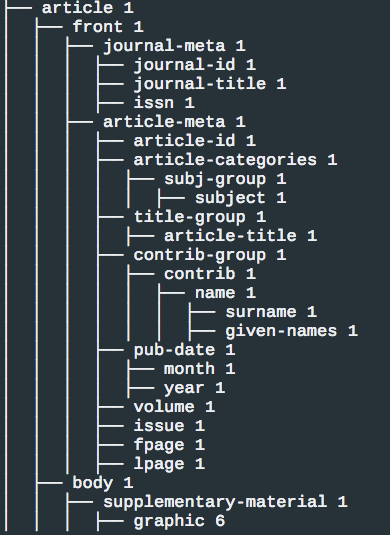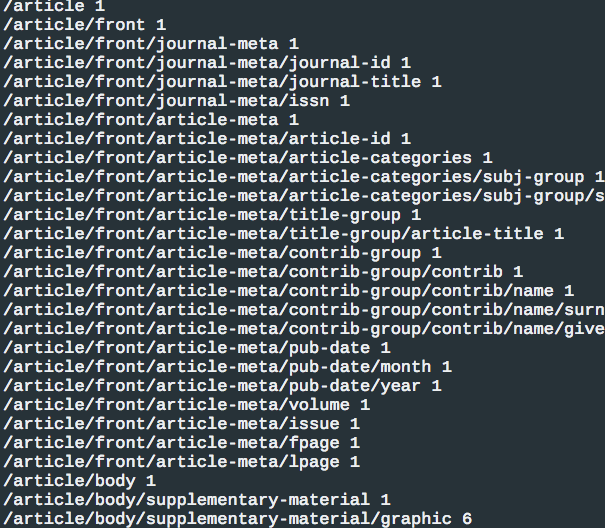xpath-generator
v1.1.0
Published
Xpath-Generator =====
Downloads
28
Readme
Xpath-Generator
Node script (API & CLI) that can generate a list of xpaths for XML files, group & count them, list attributes & values.
Tree view :

List view:

CLI :
npm i -g xpath-generatorThen :
xpath-generator -f /folder/ -o /outputFolder information
If you want to lauch xpath-generator on a folder, please make sur all your XML are at the top level of our folder, xpath-generator will not go through subfolder to find them.
If your main folder contains nasted subfolders wich contains your xml (ex: /main/sub/ex.xml) please consider using Sisyphe
Help
xpath-generator --helpOptions
-h, --help //output usage information
-V, --version //output the version number
-a, --attributes //Will return all attributes & 10 first uniques values for all paths
-i, --input <"path"> //An xml input file
-f, --folder <"path"> //A folder containing xml files
-o, --output <path/"console"> //Generate files to specific folder, default output is terminal
-t, --type <"tree"/"xpaths"/"both"> Type of format output, can be 'tree' 'xpaths' or 'both' for outputdir, 'tree' 'xpaths' for console
-n, --nbattvalues // Number of attribute values to output (see -a), default value: 10
Use xpath-generator as API :
npm i -save xpath-generatorLoad it :
const FromXML = require('xpath-generator').FromXML,
FromFolder = require('xpath-generator').FromFolder;Use it :
let xml = new FromXml().generate('path/to/XML').then(result=> {
for (var key in result) {
console.log(`${path} ${result[path].countElement}`);
}
});
let xmls = new FromFolder().generateAll(program.folder).then(result=> {
for (var key in result) {
console.log(`${path} ${result[path].countElement}`);
}
});Result will return an array of object like:
[
{
'/path/number/1' : {
countElement : n,
level : n,
attributes: {
attr1: ['a','list','of','distinct','values','for','attr1'],
attr2,
...
}
}
},
{
'/path/number/2' : {
countElement : n,
level : n,
attributes: {
attr1: ['a','list','of','distinct','values','for','attr1'],
attr2,
...
}
}
}
]Info
There is a default limit of maximum 10 values for each attributes.
Change it using --nbattvalues (or -n) option.
